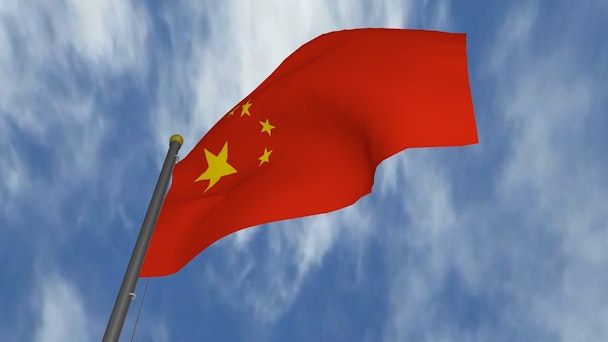Grapeshot China diaries: On my first day in China, I went to breakfast and accidentally ordered a bomb
The first in a series from Grapeshot COO Kurt Kratchman, about the issues and opportunities the business has encountered opening in China, looks at the humour and serious implications of being lost in translation.

I don’t know about you, but I can’t start the morning without protein. That’s why on my first day in Shanghai, I was in the local fanguan at 7am ordering fried eggs. I checked my pocket dictionary and carefully sounded out the word for fried (“zhá”) and the word for egg (“dàn”). I was feeling fairly pleased with my first foray into Mandarin – until the waitress burst out laughing. It was only later that I learned that fried eggs are called something different and the pronunciation of zhadan sounds almost the same as the word “bomb” in Chinese.
Ordering a bomb at breakfast was but the first of many lost in translation moments for me and my team since we’ve started doing business in China. From communicating with potential partners to hailing a taxi on the street, the language barrier is lurking in wait behind every hutong.
I’ll never forget the meeting when a colleague who’d recently been to Taiwan addressed a new business contact in Shanghai as “xiǎojiě”. It means “Miss” in Taiwan – and it’s slang for prostitute in the Mainland. But in truth, mishaps like these are the easiest to recover from. The trickier barrier in China comes in adjusting to the local communication style and how people here do business. China is transaction oriented, and people want to get things done fast. Meetings can feel like marriage proposals, as potential partners expect exclusivity and fidelity very quickly.
For Grapeshot, a company that specialises in contextual keyword analysis, there’s an added irony to getting lost in translation. I’ll let you in on a secret – our technology might be more competent than we are. Well, at least when it comes to linguistics. Because Grapeshot technology was originally created to categorise information for libraries and museums, it was designed to be language agnostic. Unlike a native English speaker who translates from English to Mandarin and back again throughout the conversation, our language segments have been built with localisation in mind from day one.
When an URL is received, we firstly identify the language of the text in the URL. It’s like a business decision for geo expansion, we would like to do business in China so we appoint a Chinese person to do it. Once the language is identified, the system will choose the relevant segment language and match the text against it. So the same Chinese person who might be fluent in English or German, he will speak Chinese when he talks to our China partners and customers. That’s why our technology works like a native speaker when it comes to contextual targeting. It’s efficient, accurate and super-fast.
The logic makes sense and the process is straightforward. But for technologies that require translation between English and native languages, say Simplified Chinese as an example, it may not be as easy or fast as it would like to be. Just like me, an English native speaker, still working out how to ask for eggs at a diner in China.
In facing up to language and communications barriers, we’ve learned to adjust to the China way of doing things. It’s not just about dusting off the Mandarin phrasebook before a meeting. Western attitudes and processes need to change too. We came into China using Whatsapp, Twitter, Facebook, and now the entire business communicates through WeChat. Of course, hiring local and bringing on board the right team and partners is key to prevent the business from getting lost in translation. We’ve also learned to communicate objectives in terms of economics, because people in China want to understand what investment the business is making, in terms of not just dollars but also time.
Whether you’re ordering a bomb at breakfast or accidentally insulting a local contact, China just wouldn’t be China with a few miscommunications. My advice for any business entering China is to do your research and start collaborating with local partners as soon as possible. The key is getting everyone in the room speaking the same language – if not literally, then at least metaphorically in terms of clearly understanding each party’s questions and concerns, wants and needs. And if you plan to ask a question in Chinese to further that understanding, just be sure to pronounce “qǐngwèn” (“May I ask…?”) very carefully so that you don’t accidentally say “qīnwěn” and end up with a kiss.
Kurt Kratchman is COO of Grapeshot. He can be found tweeting @kurtkratchman.
